There can be legitimate reasons for quitting something — including your job. In April, more American workers quit their jobs in one month than any month on record. Unfortunately, those numbers increased in July. What economists are calling the ‘Great Recession’ is having a ripple effect across all industries — including education. What can education leaders and organizations do about this challenge?
Quitting isn’t supposed to be on the curriculum
Growing up, I developed the strong belief that one should never quit. You start what you finish. Unless it is a bad habit, you don’t quit and walk away. Teachers told us to “never give up.” As an adult, I realize things aren’t so simple. While I firmly believe hard work pays off, and a positive mindset can carry you through challenges you never thought you could overcome — every situation is unique. While there is tremendous value in perseverance, what if you are on the wrong path? As the final U.S. military planes soared out of Afghanistan, quitting an unfinished $2.3 trillion war, many workers finally decided they had enough too.
The ‘Great Resignation’ and public education
Schools are struggling with staffing issues across the country. Public charter schools and districts can’t find enough cafeteria workers, bus drivers, and IT specialists. Teachers are walking off the job. Schools are being forced to shut down. The reasons are legitimate and too numerous to name: fear of getting Covid, pay, lack of respect, lack of Covid-19 safety measures, vaccine mandates, poor management, a broken search and recruitment process, and lack of funding.
Schools struggled before the labor crisis to recruit top talent and keep pay competitive, but the problem is now exacerbated: “The return to full brick-and-mortar operations for K-12 schools has coincided with massive upheaval in the nation’s labor market, as a surge of workers resign from their jobs and appear reluctant to take on new responsibilities without an assurance of a suitable work environment that includes better pay and benefits than they’ve previously been afforded,” Mark Lieberman writes in Education Week.
Endings allow for new beginnings
This is just another reminder that all work is important in this country and that schools and organizations can’t operate unless you have a strong team — across all segments. It is already a challenge to lead a fully-staffed and well-funded school. While the administration and teachers might be higher on the pay scale than the maintenance team and bus drivers, we need all team members to feel included, valued, and earning a fair and competitive. Workers have more choices now and many prefer the flexibility of working from home. To create robust programs and teams, education leaders have to adjust to the new normal and push for more inclusive work environments that give all workers a sense of purpose and meaning.
Strategies to Increase Employee Inclusivity
This crisis is a wake-up call for education leaders. It is also a stark reminder that we have to quit doing business as usual — if we want to find and keep top talent. Let’s quit stagnating and transform our schools and organizations into equitable workplaces where everyone understands the mission and feels like they are a part of the team, cared for, included, and their work matters — no matter how low-skilled it might appear to some. Below are a few strategies to consider to improve employee morale, and create a more equitable, meaningful workplace:
- Have a clear mission
Everyone in the organization should understand they are working for a higher purpose that has meaning. The mission can not be successfully accomplished without all team members. From the highest-paid administrators to the bus drivers, food specialists, and maintenance staff — everyone is needed and should feel valued, respected, and appreciated.
- Improve working conditions
Even small improvements can make a difference. Reduce bureaucracy wherever possible. Work on safety. Establish team leaders that can monitor morale and reward employees for small things. Celebrate achievement.
- Implement team-building activities for everyone
Recognize birthdays and milestones. Raise money for those who are struggling. Create committees that work on improving team cohesion. Give everyone the opportunity to lead.
- Eradicate low-value professional development
After a full workday, most workers are ready to leave and return to their life. Making them stay 2-hours for mandated professional development that has little or no value will encourage them to start looking for a remote job as soon as they leave the building. Improve, reduce, eradicate extra training and meeting — unless it has clear and meaningful value towards the mission
- Push for transparent and better pay
This can be tough with strict legislative budgets and funding. Get creative. Write to your state leaders. Meet with public officials. Do good work and let the public and legislature know how valuable your employees are. Be proactive and clear about the reasons you need to increase pay and benefits — and any staffing shortages.
Public charter school districts, schools, and education nonprofits need support during this crisis. Stronger Consulting can give you the expertise to navigate through these difficult times. Learn how Stronger Consulting works with districts and organizations on program development/ implementation, search and recruiting, management consulting, and fundraising.







